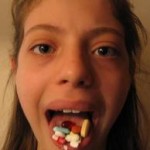 Sherry Gaba LCSW, Psychotherapist, Life & Recovery Coach is featured Celebrity Rehab on VH1. Sherry is the author of “The Law of Sobriety” which uses the law of attraction to recover from any addiction. Please download your copy of “Manifest Holistic Health” from Sherry’s Enrich Your Life Series. Contact Sherry at sherry@sgabatherapy.com for webinars, teleseminars, coaching packages and speaking engagements. Listen to Sherry on “A Moment of Change with Sherry Gaba”on CBS Radio.
Sherry Gaba LCSW, Psychotherapist, Life & Recovery Coach is featured Celebrity Rehab on VH1. Sherry is the author of “The Law of Sobriety” which uses the law of attraction to recover from any addiction. Please download your copy of “Manifest Holistic Health” from Sherry’s Enrich Your Life Series. Contact Sherry at sherry@sgabatherapy.com for webinars, teleseminars, coaching packages and speaking engagements. Listen to Sherry on “A Moment of Change with Sherry Gaba”on CBS Radio.
Research into the role of teen behavior in developing addictions in adulthood is now presenting a clear picture of a link between the two. Many adults that have problems with alcohol and drug addictions report that their first substance abuse problems began in their teen years, often with the actual addiction being present before the age of 21. A history of addiction in the family, particularly with parents, increases the predisposition of developing an addiction but only if combined with negative environmental factors.
Research methods and brain study has evolved to the point that the specific reason why this occurs is now fairly well understood. Young brains, before the age of adulthood, are still developing different circuitry and response patterns. Adolescent brains, as well as those of children, are in overdrive when it comes to learning and experiencing the world, which is why risk taking is so commonplace with this age group. Everything is done for the moment without any checks or balances or considerations for long term repercussions. It is like the adolescent brain is always in “yes” mode when it comes to decision making, the “no” part of the brain is not yet developed, and won’t be until the mid to late twenties.
When teens use alcohol and drugs while the brain is developing, changes in the neurological components occur. Brains of addicts have chemical imbalances that limit the brain from uptaking the naturally occurring chemicals that provide feelings of satisfaction and positive reward. But, when alcohol or drugs are used, those substances do trigger feelings of pleasure and satisfaction, leading to a greater demand for the source of the sensation. If a teen uses these substances the brain craves more and more to feel pleasure and reward, driving the addiction but also changing the chemical pathways in the brain, further limiting the use of the naturally occurring pleasure chemicals.
Without intervention and cessation of use of the addictive substance or behavior, teen addiction or use turns into adult addictions. Early treatment with an addiction therapist will be very successful in limiting the risky behavior and setting the teen up for a positive, sober and non-addictive life.
Join me Nov 17 at 9 am PST for a FREE Teleseminar as I discuss how to Consciously Parent your Children by Eliminating your Hidden Habits that are Keeping you from being Present. http://greatparentingshow.com/cmd.php?af=1385725

